- Home
- William Shakespeare
Much Ado About Nothing Page 6
Much Ado About Nothing Read online
Page 6
Yet will he swear he loves.
DON PEDRO Nay, pray thee come,
Or if thou wilt hold longer argument,
Do it in notes.
BALTHASAR Note this before my notes:
There’s not a note of mine that’s worth the noting.
DON PEDRO Why, these are very crotchets that he speaks:
Note notes, forsooth, and nothing.
Music
BENEDICK Now, divine air! Now is his soul ravished.
Aside
Is it not strange that sheep’s guts should hale souls out of
men’s bodies? Well, a horn for my money, when all’s done.
BALTHASAR [Sings] the song
Sigh no more, ladies, sigh no more,
Men were deceivers ever:
One foot in sea and one on shore,
To one thing constant never.
Then sigh not so, but let them go,
And be you blithe and bonny,
Converting all your sounds of woe
Into hey nonny, nonny.
Sing no more ditties, sing no moe,
Of dumps so dull and heavy:
The fraud of men was ever so,
Since summer first was leafy.
Then sigh not so, etc.
DON PEDRO By my troth, a good song.
BALTHASAR And an ill singer, my lord.
DON PEDRO Ha, no, no, faith: thou sing’st well enough for a shift.
BENEDICK An he had been a dog that should have
Aside
howled thus, they would have hanged him, and I pray God
his bad voice bode no mischief. I had as lief have heard the
night-raven, come what plague could have come after it.
DON PEDRO Yea, marry, dost thou hear, Balthasar? I pray thee
get us some excellent music, for tomorrow night we would
have it at the Lady Hero’s chamber window.
BALTHASAR The best I can, my lord.
DON PEDRO Do so: farewell.
Exit Balthasar
Come hither, Leonato. What was it you told me of today, that
your niece Beatrice was in love with Signior Benedick?
CLAUDIO O, ay! Stalk on, the fowl sits.—
Aside to Don Pedro
I did never think that lady would have loved
Aloud
any man.
LEONATO No, nor I neither, but most wonderful that she
should so dote on Signior Benedick, whom she hath in all
outward behaviours seemed ever to abhor.
BENEDICK Is’t possible? Sits the wind in that corner?
Aside
LEONATO By my troth my lord, I cannot tell what to think of
it, but that she loves him with an enraged affection: it is past
the infinite of thought.
DON PEDRO Maybe she doth but counterfeit.
CLAUDIO Faith, like enough.
LEONATO O God! Counterfeit? There was never counterfeit of
passion came so near the life of passion as she discovers it.
DON PEDRO Why, what effects of passion shows she?
CLAUDIO Bait the hook well, this fish will bite.
Aside to them
LEONATO What effects, my lord? She will sit you — you heard
my daughter tell you how.
CLAUDIO She did indeed.
DON PEDRO How, how, I pray you? You amaze me: I would have
thought her spirit had been invincible against all assaults of
affection.
LEONATO I would have sworn it had, my lord, especially
against Benedick.
BENEDICK I should think this a gull, but that the
Aside
white-bearded fellow speaks it: knavery cannot sure hide
himself in such reverence.
CLAUDIO He hath ta’en th’infection — hold it up.
Aside to them
DON PEDRO Hath she made her affection known to Benedick?
LEONATO No, and swears she never will. That’s her torment.
CLAUDIO ’Tis true indeed, so your daughter says: ‘Shall I,’
says she, ‘that have so oft encountered him with scorn, write
to him that I love him?’
LEONATO This says she now when she is beginning to write to
him, for she’ll be up twenty times a night, and there will she
sit in her smock till she have writ a sheet of paper: my
daughter tells us all.
CLAUDIO Now you talk of a sheet of paper, I remember a
pretty jest your daughter told us of.
LEONATO O, when she had writ it, and was reading it over, she
found ‘Benedick’ and ‘Beatrice’ between the sheet?
CLAUDIO That.
LEONATO O, she tore the letter into a thousand halfpence,
railed at herself, that she should be so immodest to write to
one that she knew would flout her. ‘I measure him’, says she,
‘by my own spirit, for I should flout him if he writ to me, yea,
though I love him, I should.’
CLAUDIO Then down upon her knees she falls, weeps, sobs,
beats her heart, tears her hair, prays, curses: ‘O sweet
Benedick! God give me patience!’
LEONATO She doth indeed, my daughter says so, and the
ecstasy hath so much overborne her that my daughter is
sometime afeard she will do a desperate outrage to herself: it
is very true.
DON PEDRO It were good that Benedick knew of it by some other,
if she will not discover it.
CLAUDIO To what end? He would but make a sport of it and
torment the poor lady worse.
DON PEDRO An he should, it were an alms to hang him. She’s an
excellent sweet lady and, out of all suspicion, she is virtuous.
CLAUDIO And she is exceeding wise.
DON PEDRO In everything, but in loving Benedick.
LEONATO O, my lord, wisdom and blood combating in so
tender a body, we have ten proofs to one that blood hath the
victory. I am sorry for her, as I have just cause, being her
uncle and her guardian.
DON PEDRO I would she had bestowed this dotage on me: I
would have daffed all other respects and made her half
myself. I pray you tell Benedick of it and hear what he will
say.
LEONATO Were it good, think you?
CLAUDIO Hero thinks surely she will die, for she says she will
die if he love her not, and she will die ere she make her love
known, and she will die if he woo her, rather than she will
bate one breath of her accustomed crossness.
DON PEDRO She doth well: if she should make tender of her love,
’tis very possible he’ll scorn it, for the man, as you know all,
hath a contemptible spirit.
CLAUDIO He is a very proper man.
DON PEDRO He hath indeed a good outward happiness.
CLAUDIO ’Fore God, and in my mind, very wise.
DON PEDRO He doth indeed show some sparks that are like wit.
LEONATO And I take him to be valiant.
DON PEDRO As Hector, I assure you: and in the managing of
quarrels you may see he is wise, for either he avoids them
with great discretion, or undertakes them with a Christian-
like fear.
LEONATO If he do fear God, a must necessarily keep peace. If
he break the peace, he ought to enter into a quarrel with fear
and trembling.
DON PEDRO And so will he do, for the man doth fear God,
howsoever it seems not in him by some large jests he will
make. Well, I am sorry for your niece. Shall we go seek
Benedick, and tell him of her love?
CLAUDIO Never tell him, my lor
d: let her wear it out with good
counsel.
LEONATO Nay, that’s impossible: she may wear her heart out
first.
DON PEDRO Well, we will hear further of it by your daughter. Let
it cool the while. I love Benedick well, and I could wish he
would modestly examine himself, to see how much he is
unworthy to have so good a lady.
LEONATO My lord, will you walk? Dinner is ready.
CLAUDIO If he do not dote on her upon this,
Aside to them
I will never trust my expectation.
DON PEDRO Let there be the same net spread for
Aside to them
her, and that must your daughter and her gentlewoman
carry. The sport will be when they hold one an opinion of
another’s dotage, and no such matter: that’s the scene that I
would see, which will be merely a dumb-show. Let us send
her to call him in to dinner.
Exeunt [Don Pedro, Claudio and Leonato]
BENEDICK This can be no trick: the conference was
He comes forward
sadly borne, they have the truth of this from Hero.
They seem to pity the lady: it seems her affections have the
full bent. Love me? Why, it must be requited. I hear how I am
censured: they say I will bear myself proudly, if I perceive the
love come from her. They say too that she will rather die than
give any sign of affection. I did never think to marry. I must
not seem proud. Happy are they that hear their detractions
and can put them to mending. They say the lady is fair — ’tis
a truth, I can bear them witness, and virtuous — ’tis so, I
cannot reprove it, and wise, but for loving me — by my troth,
it is no addition to her wit, nor no great argument of her
folly, for I will be horribly in love with her. I may chance have
some odd quirks and remnants of wit broken on me because
I have railed so long against marriage. But doth not the
appetite alter? A man loves the meat in his youth that he
cannot endure in his age. Shall quips and sentences and
these paper bullets of the brain awe a man from the career of
his humour? No, the world must be peopled. When I said I
would die a bachelor, I did not think I should live till I were
married. Here comes Beatrice. By this day, she’s a fair lady! I
do spy some marks of love in her.
Enter Beatrice
BEATRICE Against my will I am sent to bid you come in to
dinner.
BENEDICK Fair Beatrice, I thank you for your pains.
BEATRICE I took no more pains for those thanks than you take
pains to thank me: if it had been painful, I would not have
come.
BENEDICK You take pleasure then in the message?
BEATRICE Yea, just so much as you may take upon a knife’s
point and choke a daw withal. You have no stomach, signior,
fare you well.
Exit
BENEDICK Ha! ‘Against my will I am sent to bid you come in to
dinner’ — there’s a double meaning in that. ‘I took no more
pains for those thanks than you took pains to thank me’ —
that’s as much as to say, ‘Any pains that I take for you is as
easy as thanks.’ If I do not take pity of her, I am a villain: if I
do not love her, I am a Jew. I will go get her picture.
Exit
Act 3 Scene 1
running scene 6
Enter Hero, and two gentlewomen, Margaret and Ursula
HERO Good Margaret, run thee to the parlour,
There shalt thou find my cousin Beatrice
Proposing with the prince and Claudio.
Whisper her ear, and tell her I and Ursula
Walk in the orchard, and our whole discourse
Is all of her. Say that thou overheard’st us,
And bid her steal into the pleachèd bower
Where honeysuckles, ripened by the sun,
Forbid the sun to enter, like favourites,
Made proud by princes, that advance their pride
Against that power that bred it: there will she hide her
To listen our purpose. This is thy office:
Bear thee well in it, and leave us alone.
MARGARET I’ll make her come, I warrant you, presently.
[Exit]
HERO Now, Ursula, when Beatrice doth come,
As we do trace this alley up and down,
Our talk must only be of Benedick.
When I do name him, let it be thy part
To praise him more than ever man did merit:
My talk to thee must be how Benedick
Is sick in love with Beatrice. Of this matter
Is little Cupid’s crafty arrow made,
That only wounds by hearsay.
Enter Beatrice[into the bower]
Now begin:
For look where Beatrice like a lapwing runs
Close by the ground to hear our conference.
URSULA The pleasant’st angling is to see the fish
To Hero
Cut with her golden oars the silver stream,
And greedily devour the treacherous bait:
So angle we for Beatrice, who even now
Is couchèd in the woodbine coverture.
Fear you not my part of the dialogue.
HERO Then go we near her, that her ear lose
To Ursula
nothing
Of the false sweet bait that we lay for it.
They approach the bower
No, truly, Ursula, she is too disdainful:
Aloud
I know her spirits are as coy and wild
As haggards of the rock.
URSULA But are you sure
That Benedick loves Beatrice so entirely ?
HERO So says the prince and my new-trothèd lord.
URSULA And did they bid you tell her of it, madam?
HERO They did entreat me to acquaint her of it,
But I persuaded them, if they loved Benedick,
To wish him wrestle with affection,
And never to let Beatrice know of it.
URSULA Why did you so? Doth not the gentleman
Deserve as full as fortunate a bed
As ever Beatrice shall couch upon?
HERO O god of love! I know he doth deserve
As much as may be yielded to a man.
But nature never framed a woman’s heart
Of prouder stuff than that of Beatrice.
Disdain and scorn ride sparkling in her eyes,
Misprising what they look on, and her wit
Values itself so highly that to her
All matter else seems weak: she cannot love,
Nor take no shape nor project of affection,
She is so self-endeared.
URSULA Sure, I think so:
And therefore certainly it were not good
She knew his love, lest she make sport at it.
HERO Why, you speak truth. I never yet saw man,
How wise, how noble, young, how rarely featured,
But she would spell him backward: if fair-faced,
She would swear the gentleman should be her sister:
If black, why, nature, drawing of an antic,
Made a foul blot: if tall, a lance ill-headed:
If low, an agate very vilely cut:
If speaking, why, a vane blown with all winds:
If silent, why, a block movèd with none.
So turns she every man the wrong side out,
And never gives to truth and virtue that
Which simpleness and merit purchaseth.
URSULA Sure, sure, such carping is not commendab
le.
HERO No, not to be so odd and from all fashions
As Beatrice is cannot be commendable.
But who dare tell her so? If I should speak,
She would mock me into air: O, she would laugh me
Out of myself, press me to death with wit.
Therefore let Benedick, like covered fire,
Consume away in sighs, waste inwardly.
It were a better death than die with mocks,
Which is as bad as die with tickling.
URSULA Yet tell her of it: hear what she will say.
HERO No, rather I will go to Benedick
And counsel him to fight against his passion.
And truly I’ll devise some honest slanders
To stain my cousin with. One doth not know
How much an ill word may empoison liking.
URSULA O, do not do your cousin such a wrong.
She cannot be so much without true judgement —
Having so swift and excellent a wit
As she is prized to have — as to refuse
So rare a gentleman as Signior Benedick.
HERO He is the only man of Italy,
Always excepted my dear Claudio.
URSULA I pray you be not angry with me, madam,
Speaking my fancy: Signior Benedick,
For shape, for bearing, argument and valour,
Goes foremost in report through Italy.
HERO Indeed he hath an excellent good name.
URSULA His excellence did earn it ere he had it.
When are you married, madam?
HERO Why, every day, tomorrow. Come, go in:
I’ll show thee some attires, and have thy counsel
They step back from the bower
Which is the best to furnish me tomorrow.
URSULA She’s ta’en, I warrant you: we have caught her,
madam.
HERO If it prove so, then loving goes by haps:
Some Cupid kills with arrows, some with traps.
Exeunt [Hero and Ursula]
BEATRICE What fire is in mine ears? Can this be true?
She comes forward
Stand I condemned for pride and scorn so much?
Contempt farewell, and maiden pride adieu!

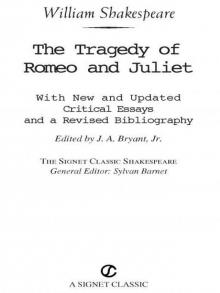 Romeo and Juliet
Romeo and Juliet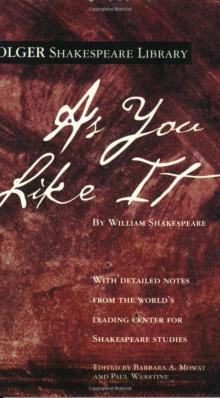 As You Like It (Folger Shakespeare Library)
As You Like It (Folger Shakespeare Library)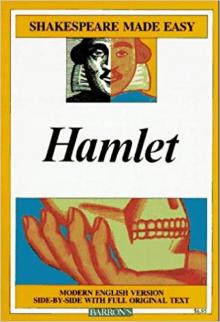 Hamlet
Hamlet Richard II (Folger Shakespeare Library)
Richard II (Folger Shakespeare Library) Macbeth
Macbeth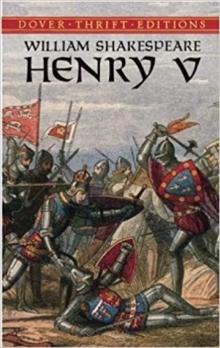 Henry V
Henry V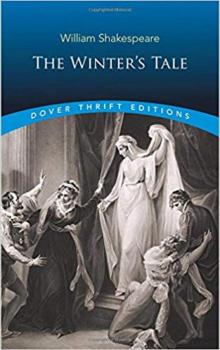 The Winter's Tale
The Winter's Tale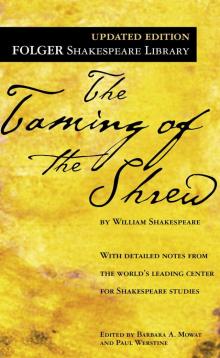 The Taming of the Shrew
The Taming of the Shrew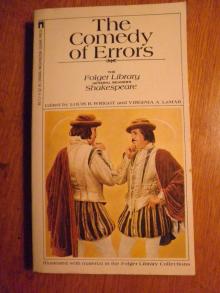 The Comedy of Errors
The Comedy of Errors King Lear (Folger Shakespeare Library)
King Lear (Folger Shakespeare Library)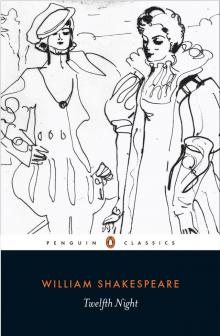 Twelfth Night
Twelfth Night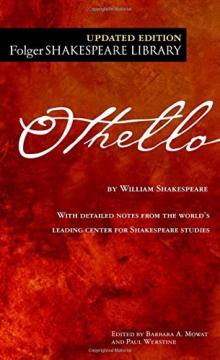 Othello
Othello The Two Gentlemen of Verona
The Two Gentlemen of Verona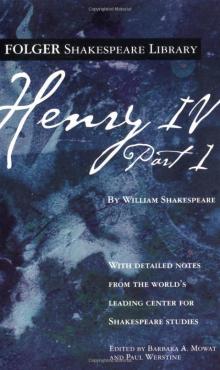 Henry IV, Part 1 (Folger Shakespeare Library)
Henry IV, Part 1 (Folger Shakespeare Library)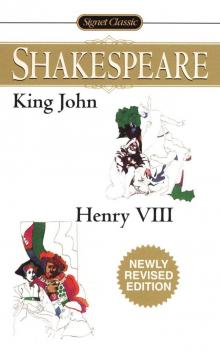 King John/Henry VIII (Signet Classics)
King John/Henry VIII (Signet Classics)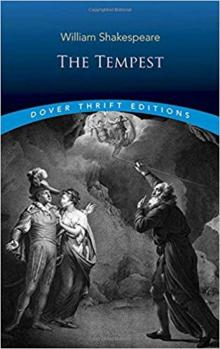 The Tempest
The Tempest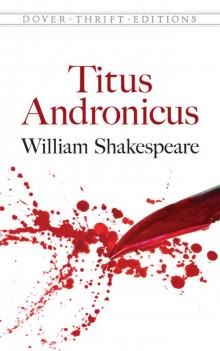 Titus Andronicus (Dover Publications)
Titus Andronicus (Dover Publications)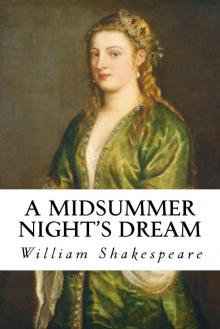 A Midsummer Night's Dream
A Midsummer Night's Dream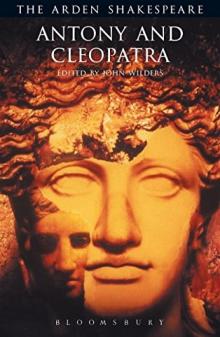 Antony and Cleopatra (Arden Shakespeare: Third Series)
Antony and Cleopatra (Arden Shakespeare: Third Series)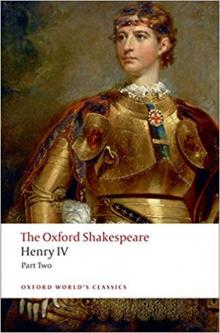 The Oxford Shakespeare: Henry IV, Part 2 (Oxford World's Classics)
The Oxford Shakespeare: Henry IV, Part 2 (Oxford World's Classics)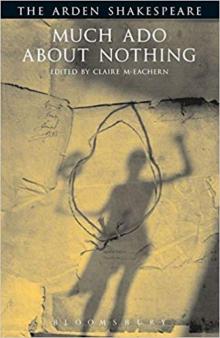 Much Ado About Nothing (Arden Shakespeare: Third Series)
Much Ado About Nothing (Arden Shakespeare: Third Series)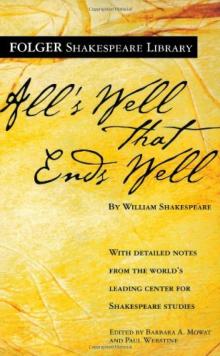 All's Well That Ends Well
All's Well That Ends Well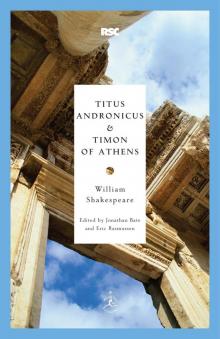 Titus Andronicus & Timon of Athens
Titus Andronicus & Timon of Athens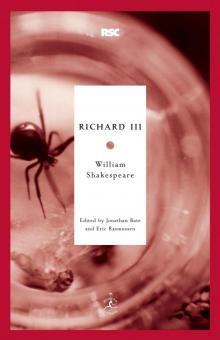 Richard III (Modern Library Classics)
Richard III (Modern Library Classics) Coriolanus
Coriolanus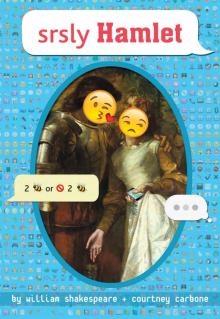 srsly Hamlet (OMG Shakespeare)
srsly Hamlet (OMG Shakespeare)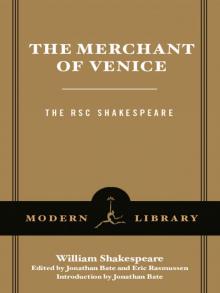 The Merchant of Venice
The Merchant of Venice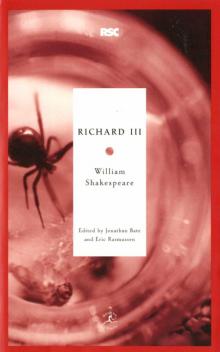 Richard III
Richard III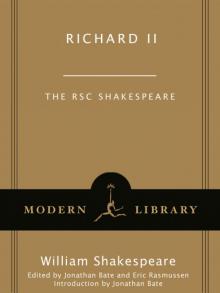 Richard II
Richard II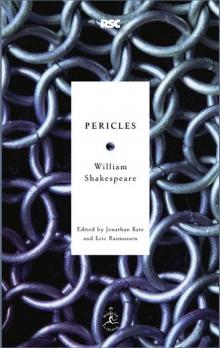 Pericles
Pericles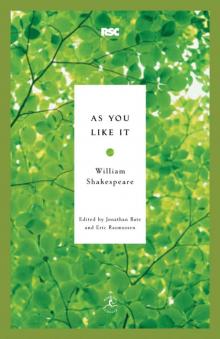 As You Like It
As You Like It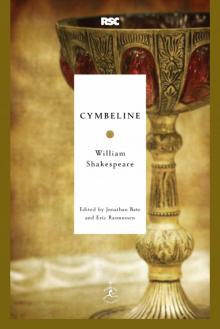 Cymbeline
Cymbeline Alls Wel that ends Well
Alls Wel that ends Well YOLO Juliet
YOLO Juliet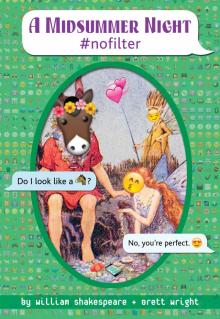 A Midsummer Night #nofilter
A Midsummer Night #nofilter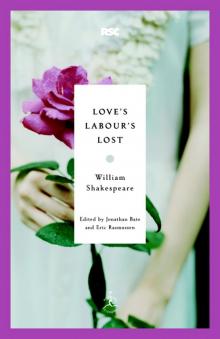 Love's Labour's Lost
Love's Labour's Lost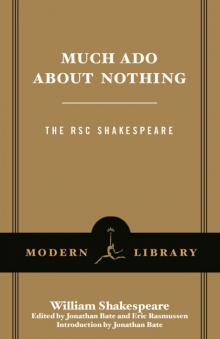 Much Ado About Nothing
Much Ado About Nothing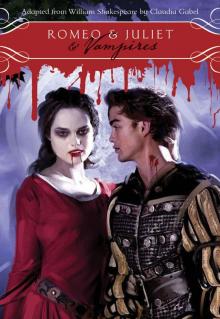 Romeo & Juliet & Vampires
Romeo & Juliet & Vampires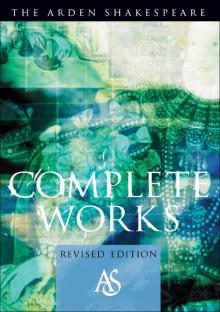 The Arden Shakespeare Complete Works
The Arden Shakespeare Complete Works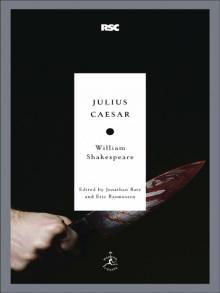 Julius Caesar
Julius Caesar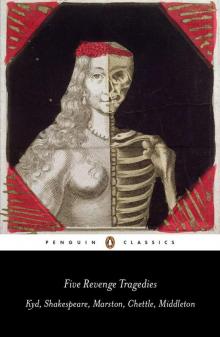 Five Revenge Tragedies: The Spanish Tragedy, Hamlet, Antonio's Revenge, The Tragedy of Hoffman, The Revenger's Tragedy (Penguin Classics)
Five Revenge Tragedies: The Spanish Tragedy, Hamlet, Antonio's Revenge, The Tragedy of Hoffman, The Revenger's Tragedy (Penguin Classics)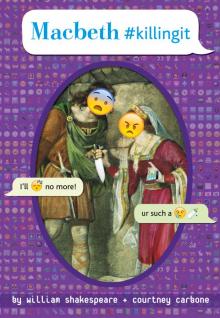 Macbeth #killingit
Macbeth #killingit The Oxford Shakespeare: The Complete Works
The Oxford Shakespeare: The Complete Works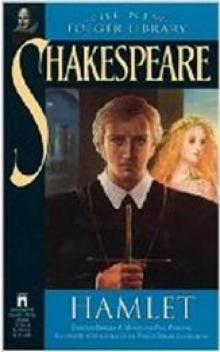 Hamlet, Prince of Denmark (Collins edition)
Hamlet, Prince of Denmark (Collins edition)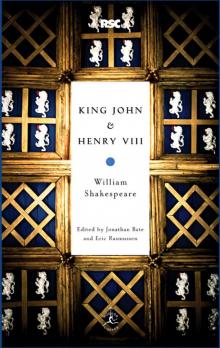 King John & Henry VIII
King John & Henry VIII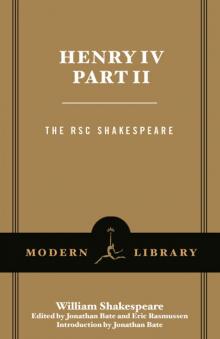 Henry IV, Part 2
Henry IV, Part 2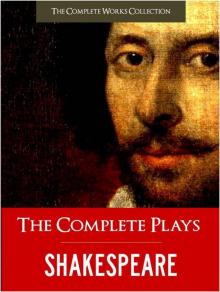 Complete Plays, The
Complete Plays, The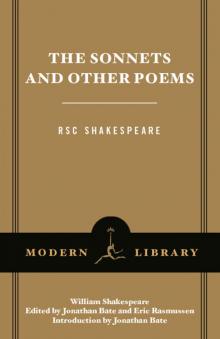 The Sonnets and Other Poems
The Sonnets and Other Poems Antony and Cleopatra
Antony and Cleopatra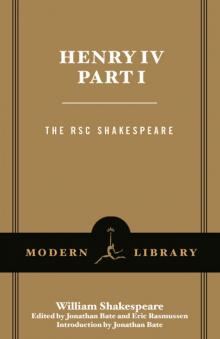 Henry IV, Part 1
Henry IV, Part 1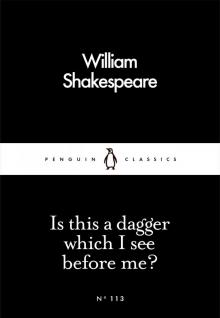 Is This a Dagger Which I See Before Me?
Is This a Dagger Which I See Before Me? The Complete Works of William Shakespeare In Plain and Simple English (Translated)
The Complete Works of William Shakespeare In Plain and Simple English (Translated) The Sonnets
The Sonnets